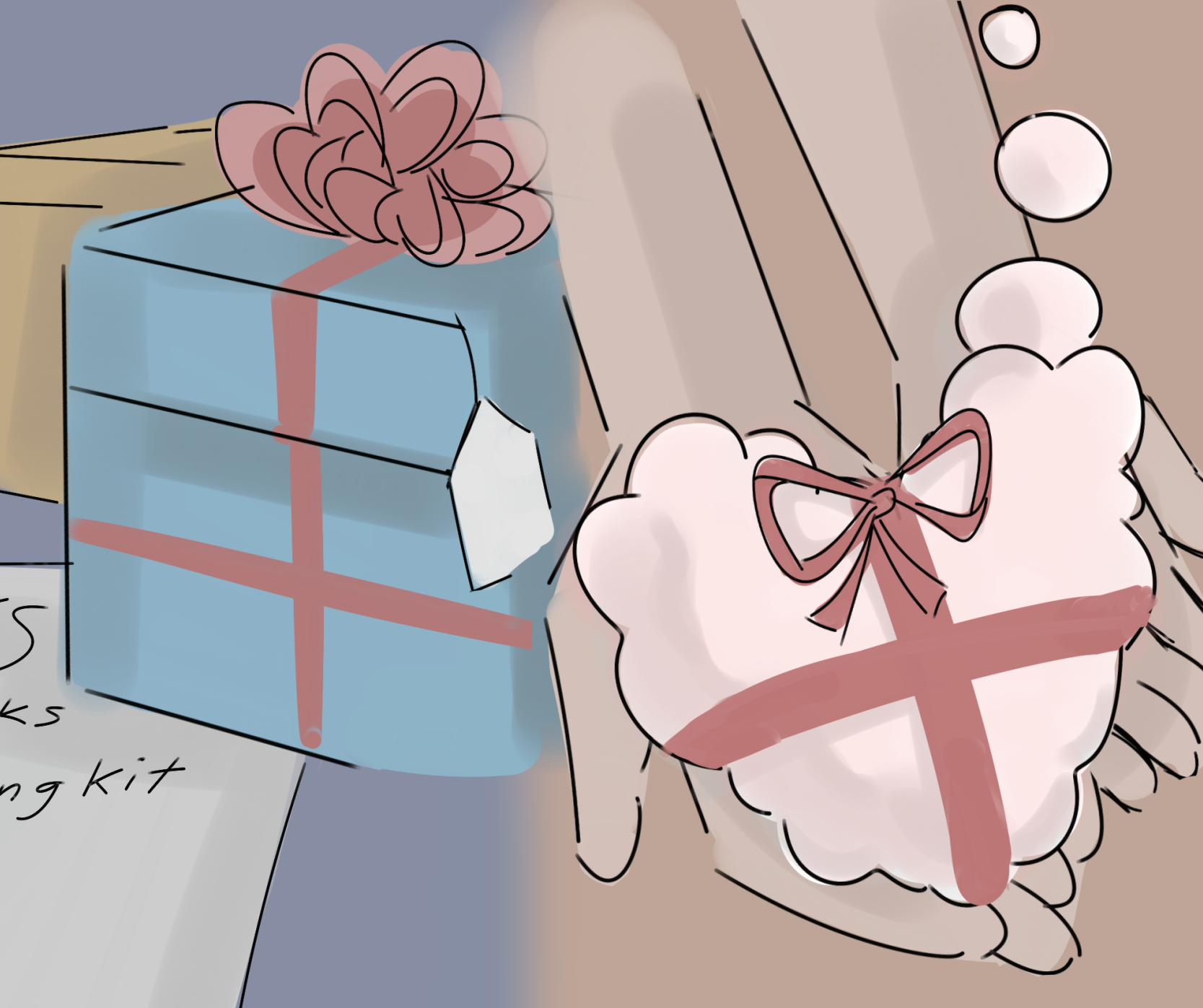Perspectives: Gift-giving

I rip open the colorful wrapping paper to find the cute new sewing kit I asked for, cheering in delight. “Thanks, this is exactly what I wanted for my birthday! How did you know?” I joke. I can’t wait to go home and start sewing.
Generally, you know what you want best. You ask for gifts you want and need. As a result, you are much more likely to actually use them. You celebrate your relationship with the gift-giver through your consistent use of their gift, creating a longer-lasting impact than thoughtful but unused presents.
Thoughtful gifts might make you smile for a moment, but they will eventually fade from your thoughts. A hand-made but clunky mug, for example, is sweet for a second. Then you place it on your shelf, where it sits there and gathers dust. You go about your regular day-to-day and just see the mug in passing—the only reason you don’t get rid of it is because you love the friend who made it.
Gifts that are solely thoughtful and not practical are also hit-or-miss unless you know the person very well. Trying to make a funny joke or a sweet gesture with a friend can be awkward if they aren’t on the same wavelength and don’t see the emotional value of your gift. It’s generally safer and almost always easier to just get them something useful that they asked for.
Practical presents will make you smile for longer. Though they don’t have the same surprise sentimental factor, they constantly remind you of the person who gifted it to you, as you end up actually using the gift and appreciating the person. I can go home after school every day and embroider with my new sewing kit, thinking of my friend as I do so. Rather than a fleeting moment of affection, I achieve more long-term happiness.
Granted, thoughtful gifts are nice once in a while because of their sheer emotional value. They can also work as an inside joke between close friends. But these are the exception, not the rule.
For the average gift-giver, a sure bet is asking your friend what they want and getting it for them. They won’t think you don’t know them well; instead, they’ll appreciate your desire to get them something they enjoy and think of you fondly whenever they use it.

Tucked away in a filing cabinet, underneath an ever-growing mess of papers, lies a box of mine. In it resides all the cards I’ve ever received. While their respective gifts and givers have come and gone, I still retain the memories we’ve shared through their writings.
That same philosophy pertains to my opinions on gifts. The practical value of a gift matters little; rather it’s the thought behind the gift that matters. After all, unlike trinkets or trifles, emotions remain priceless. Why else would we prefer specific items to gift cards and homemade creations to store-bought goods?
It’s easy to find something practical to give someone; it’s much harder to prepare something thoughtful. But taking that time and effort to do so is also what makes the gift so meaningful. Assume your friend wants a mug. It’s one thing to go on Amazon and remotely buy one; it’s entirely another to take your own time into hand-making one. While the heartfelt work might be a little worse for wear, the thought behind your actions makes the gift all the more special.
Gift-giving is an art, one that if reduced to its most pragmatic form holds no value. If you tell someone exactly what you want, yes, you’ve maximized your practical gain. But in such a choice, it’s better to skip the formalities altogether. After all, you could’ve just directly bought whatever you wanted for yourself, reducing their gift to a purely monetary gesture.
There is still merit in gifts without an emotional connection, but part of the fun of giving and receiving gifts is that level of surprise. Over the years, this mindset has come to reflect my own thoughts on gift-giving: I enjoy putting effort into making gifts, hoping to give something that the recipient will appreciate. On the other hand, I generally don’t care what I receive, as the gift is a testament to our friendship regardless.
As a baseline, practicality remains useful nonetheless, but as gifts are usually given to people one cares about, the best gifts should have some personal touch. And while there is always a certain ambiguity to the gift-giving process, it’s ideal to always lean on the side of effort. For, as the saying goes, it’s the thought that counts.


